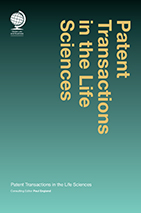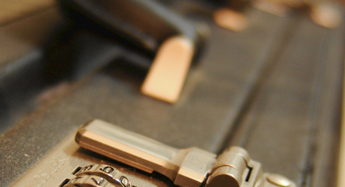Life sciences patent licensing - warranties and indemnities
When negotiating a patent licence, there are a number of general issues that must be considered and agreed. Here we consider warranties and indemnities:
Once the licence terms are agreed, negotiation is likely to focus on warranties and indemnities. These will be drafted so as to balance a number of risks between the parties and will differ to reflect the exact nature and circumstances of the particular licence being agreed. At one extreme, the licensor will not want to warrant any assertions about the patents being licensed and, at the other; the licensee will want a full suite of warranties, as well as indemnities in the event of certain breaches. Negotiation will typically produce a result that is somewhere in between the two.
Some warranties will be easier for the licensor to give than others. In particular, a licensor should be very reluctant to warrant that a licensed patent is valid. The reason for this is that it is very difficult to predict the outcome if the validity of the patent is challenged in proceedings. On the other hand, the licensor ought to be able to warrant that they have ownership of the patent because it is a registered right and they are in a position to know. Similarly, matters over which the licensor has control, such as the payment of renewal fees, knowledge of current or past infringements by third parties and conflicting prior rights, are matters upon which warranties should be expected. A licensee will also want a warranty that using the patented technology in the way being licensed will not infringe the rights of a third party.
A patent should also detail what will happen in the event that warranties are breached. For example, a patent may be revoked because it is held invalid by a court or, if the patent is in the form of an application when the licence was completed, it may later never be granted. In these circumstances, the licensee may be able to agree an indemnity in the licence for the repayment of some or all of the royalties it has paid, depending on the extent to which it has already benefitted from the licence. The licensee will also wish to be indemnified for the costs and damages payable if it has to defend proceedings, if the licensed technology infringes a third party right. On the other hand, if a third party infringes the patented technology being licensed, the licensee may want to have the contractual right to fight the proceedings itself and share or shift the cost to the licensor.
Contracts in English law are subject to the principle of caveat emptor or 'buyer beware'. This means that the party taking the benefit of an asset under a contract, in this case a licensee taking the benefit of the rights under a patent, has the responsibility to investigate that asset for potential problems or defects before entering into the contract. There is no duty upon the party offering the asset to disclose these defects.  For this reason, a prospective licensee must seek disclosure from the prospective licensor on the above issues. Whilst it is in the interests of the licensor to disclose this information as a qualification of its warranties, the licensee must interrogate the licensor as fully as possible in a process of 'due diligence' so that it is aware of any problematic issues.
For this reason, a prospective licensee must seek disclosure from the prospective licensor on the above issues. Whilst it is in the interests of the licensor to disclose this information as a qualification of its warranties, the licensee must interrogate the licensor as fully as possible in a process of 'due diligence' so that it is aware of any problematic issues.
This toolkit article is an extract from Patent Transactions in the Life Sciences (Globe Law and Business Publishing, September 2014).
If you have any questions on this article or would like to propose a subject to be addressed by Synapse please contact us.



